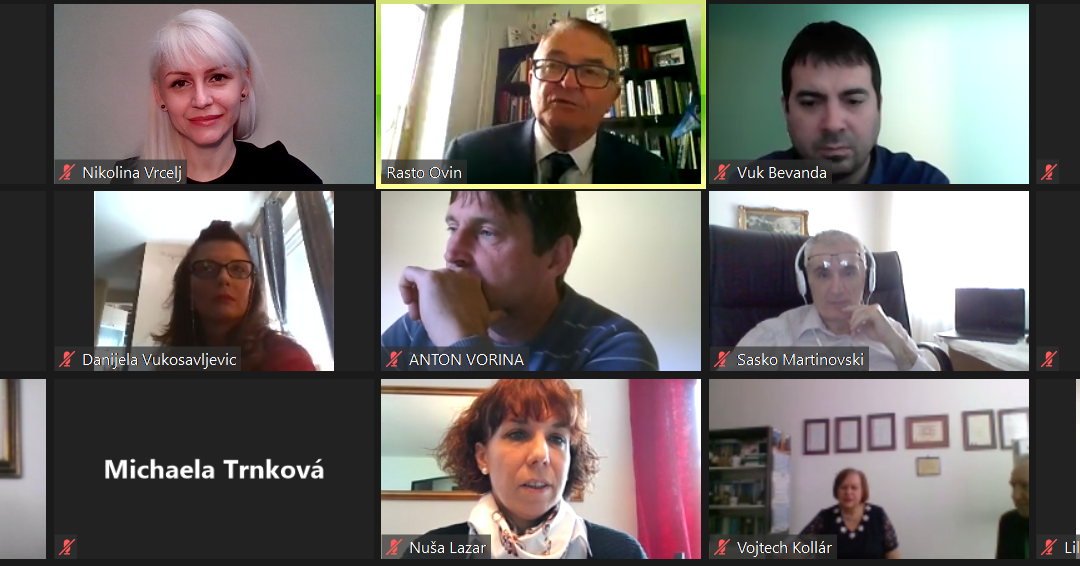Make Flying Safe Again: An Undelayable Challenge for Aviation
Federico de Andreis – Università degli Studi Giustino Fortunato, Italy
Federico Leopardi – Università degli Studi Giustino Fortunato, Italy
Keywords:
Aviation management;
Covid-19 strategies;
Aviation;
Resilience
Abstract: Flag carriers are a particular part of the aviation industry, now dominated by either privately owned carriers or budget airlines. Their market share is being reduced, they are losing ground, giving it to their counter rivals, low-cost carriers. Based on the assumption that flag carrier airlines are different in their business model from low-cost airlines, both of them have to react in a Covid-19 situation, in case a similar event would occur again. Because it is not a matter of “if”, but a matter of “when”.
This is modelling and as one it has to be put in the right context.
In this research, we will discuss, also through the use of a study model of an Italian private company, how aviation must have short- and long-term strategies, striving for resilience during the early phases of the Covid-19 pandemic, after the outbreak from Wuhan, China.
Thousands of flights were being cancelled and within weeks the passenger’s aviation was still, only cargo planes flew. When the cargo demand rose (45% of the cargo is carried by passenger flights in the belly of the planes), the dedicated global air cargo fleet could not satisfy the demand, airlines arranged passenger planes for emergency cargo flights.
They came to this solution; this is part of an aggressive market strategy that comes in times of crisis as it is during the actual global pandemic.
After analysing examples of strategies to be adopted quickly for survival, the focus of the study will be on those communication strategies towards potential travellers who – now more than ever – while waiting for recovery, need to perceive the flight as much as possible safe for their health.
Thus, it is necessary to reflect on the individual perception of risk but also on what to do to bring the subjective dimension as close as possible to the objective one. Cargo flights were a mere means to curb the tragic effects of the pandemic, however, airlines (both low-cost carriers and flag carriers) need a solution that can lead to a better response.


7th International Scientific ERAZ Conference – ERAZ 2021 – Conference Proceedings: KNOWLEDGE BASED SUSTAINABLE DEVELOPMENT, Online/virtual, May 27, 2021
ERAZ Conference Proceedings published by: Association of Economists and Managers of the Balkans – Belgrade, Serbia
ERAZ conference partners: Faculty of Economics and Business, Mediterranean University, Montenegro; University of National and World Economy – Sofia, Bulgaria; Faculty of Commercial and Business Studies – Celje, Slovenia; AMBIS University, Prague – Czech Republic; Faculty of Applied Management, Economics and Finance – Belgrade, Serbia
ERAZ Conference 2021 Conference Proceedings: ISBN 978-86-80194-46-2, ISSN 2683-5568, DOI: https://doi.org/10.31410/ERAZ.2021
Creative Commons Non Commercial CC BY-NC: This article is distributed under the terms of the Creative Commons Attribution-Non-Commercial 4.0 License (https://creativecommons.org/licenses/by-nc/4.0/) which permits non-commercial use, reproduction and distribution of the work without further permission.
References
Howarth, C.I. (1988). The relationship between objective risk, subjective risk and behaviour, Ergonomics, 31:4, 527-535, DOI: 10.1080/00140138808966697
https://www.aviation-report.co
https://www.travelagentcentral.com/
Skare M., Soriano D. & Porada Rochoń M. (2020). Impact of COVID-19 on the travel and tourism industry. Technological Forecasting and Social Change, 163. https://doi.org/10.1016/j. techfore.2020.120469
Slovic, P. (2001). The Perception of Risk. London, UK: Earthscan Publications Ltd.
www.turisimoitalianews.it
ADDITIONAL READING
Burghouwt, G., & Hakfoort, J. (2001). The evolution of the European aviation network, 1990- 1998. Journal of Air Transport Management, 7(5), 311–318. https://doi.org/10.1016/S0969- 6997(01)00024-2
Power, M. (2004). The risk management of everything. The Journal of Risk Finance, 5(3), 58-65
Slovic, P., Malmfors, T., Mertz ,C., Neil, N., Purchase, I.F. (1997) Evaluating chemical risks: results of a survey of the British Toxicology Society. Human & Experimental Toxicology, 16(6), 289- 304. doi:10.1177/096032719701600601
Stulz, R. M. (1996). Rethinking risk management. Journal of applied corporate finance, 9(3), 8-25.
United Nations Conference on Trade and Development (2021), Covid-19 And Tourism, An Update

